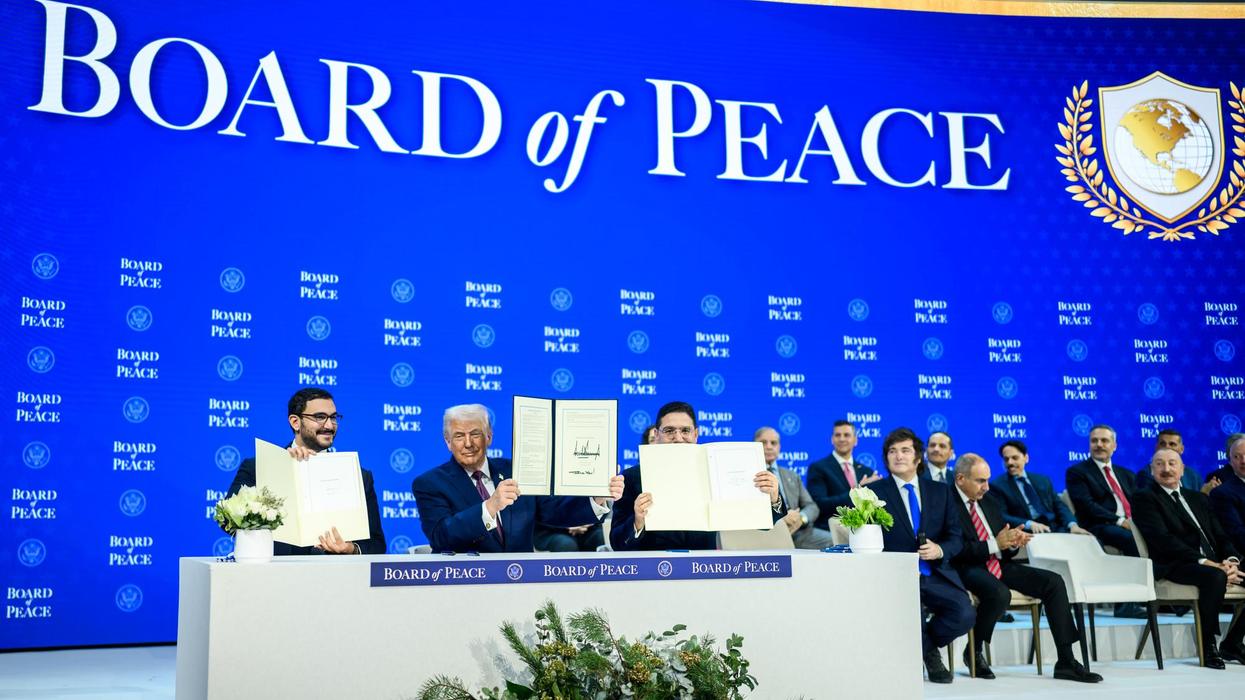The Senate is throwing small business a bone in the annual defense policy bill.
The legislation currently includes a provision aimed at improving timely payments to small businesses doing military work. Ultimately, ensuring small businesses are paid quickly saves taxpayer dollars.
The challenge is that the government doesn’t usually hire small businesses to do military work; it hires larger prime contractors, which include defense giants like Lockheed Martin and Raytheon. But prime contractors outsource between 60 and 70 percent of Pentagon contract work. And while the department grants prime contractors agreeable payment terms and generous contract financing, the department doesn’t have much information about how primes treat the small business subcontractors they hire.
However, a recent Pentagon study on contract financing reveals that overall, these subcontractors “do not enjoy the same favorable payment terms” that primes receive from the government. Primes don’t typically pay subcontractors anything until the work is done. That means small businesses doing work for the Pentagon often must self-finance or obtain other funding to generate the cash flow needed to pay their bills and remain operational. Poor contract terms for subcontractors can deter companies from government work, could contribute to higher prices, and may even drive companies to leave the defense sector.
By largely denying subcontractors the cash flow they need, primes risk adding to the taxpayers’ burden. Businesses in need of cash flow are forced to borrow, sometimes by selling unpaid invoices for primes to factoring companies. In exchange, factoring companies provide small businesses with the cash to pay their bills — at a cost. Businesses may have to sell their unpaid invoices at a discount, losing value on the subcontract itself, in addition to paying any relevant fees. The costs of this form of borrowing are paid by either the taxpayer or the small business: It depends on whether the business successfully advocates to increase the subcontract price to account for these costs. Otherwise, the costs cut into the business’s profit.
Ironically, small business subcontractors need advantageous payment terms and stable financing the most — but such terms are effectively only available to prime contractors working directly for the Pentagon. Indeed, the Prompt Payment Act requires the government to pay primes in a timely fashion, and it even mandates the government pay interest on any late payments. Subcontractors don’t typically enjoy these benefits, often leaving them strapped for cash.
The Senate is trying to help alleviate the cash flow challenges that small business subcontractors face by reproaching primes for insufficient payments, requiring them to work with the department to correct and mitigate any failures to make “full or timely” payments to subcontractors. This is a significant problem according to the Pentagon, which reported in a recent study that 29.6 percent of subcontract invoices were paid late by primes in 2022. But the study — which took three years to complete and constituted the first comprehensive review of contract finance policy since 1985 — is just a window into the subcontracting experience in the defense industry.
Both the Government Accountability Office and the Congressional Research Service have pointed out the lack of data on how primes flow funds to subcontractors. That doesn’t mean there isn’t existing guidance on paying subcontractors; there is. There’s even an existing requirement for the Pentagon to include in contractors’ performance evaluations an assessment of the contractor’s history with reduced or late payments to subcontractors. Unfortunately, however, public access to that information is limited — and considering the scale of late payments to subcontractors in 2022, performance evaluations aren’t deterring companies from underpaying or paying subcontractors late.
To make matters worse, according to the GAO, the Pentagon’s oversight processes “are not designed to and do not provide comprehensive visibility” into how or whether payments are transferred from primes to suppliers at all. This is despite the fact that in some cases, primes’ failure to transfer payments to small business subcontractors directly impacts the Pentagon’s costs, and thus, the taxpayers’ too. The Pentagon itself has said that it relies on subcontractors to report missing or late payments from primes, but subcontractors don’t even always know that their ultimate customer is the government.
That’s right! Even though subcontractors can go to the Pentagon with particular payment issues they’re having with a prime, sometimes they don’t even know that’s an option because they don’t have access to the prime contract number under which they’re working, much less the assigned contracting officer.
All of this to say, the Senate provision is prescriptive about how to ensure small business subcontractors are made whole when primes fail to deliver full and/or timely payments. But that aside, it isn’t terribly different from existing guidance on paying subcontractors. Tracking incomplete and late payments to subcontractors is great to shame primes for bad behavior — but technically the Pentagon is already required to do that, albeit mostly privately. Primes’ track record on paying subcontractors should be totally accessible to the public, and not just contracting officers at the Pentagon.
Transparency is critical to better understanding the challenges that subcontractors face so that Congress can advance better payment protections for small businesses doing work for the Pentagon. Doing so will not only save the taxpayer money, it will also stoke competition in an industry that sorely needs it.
















